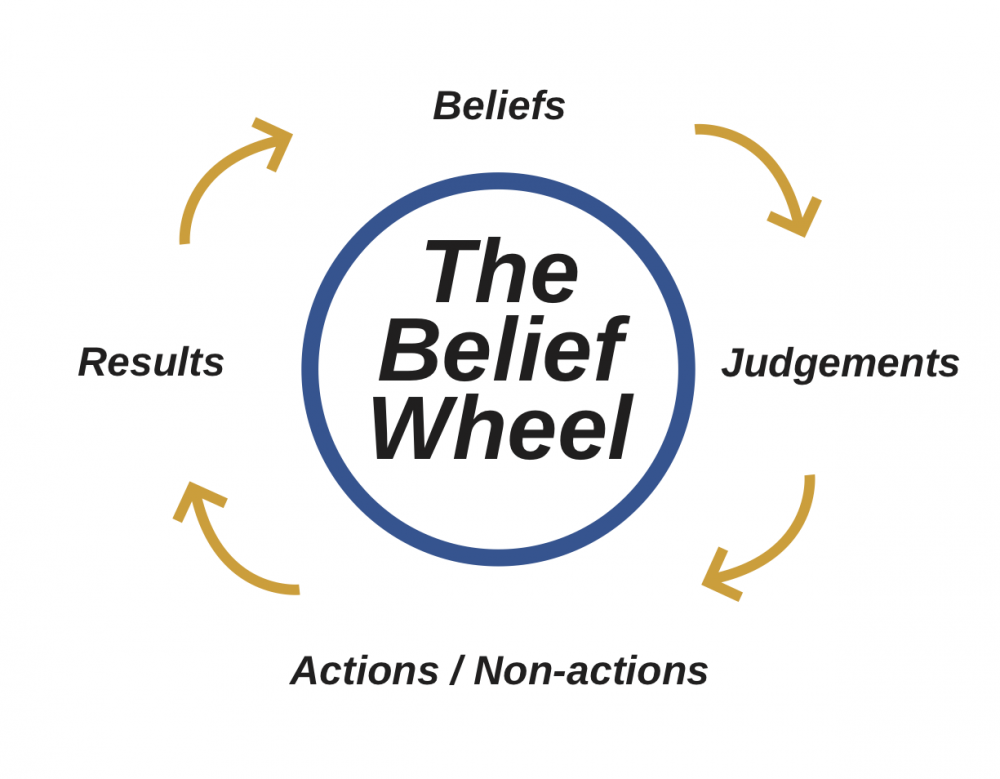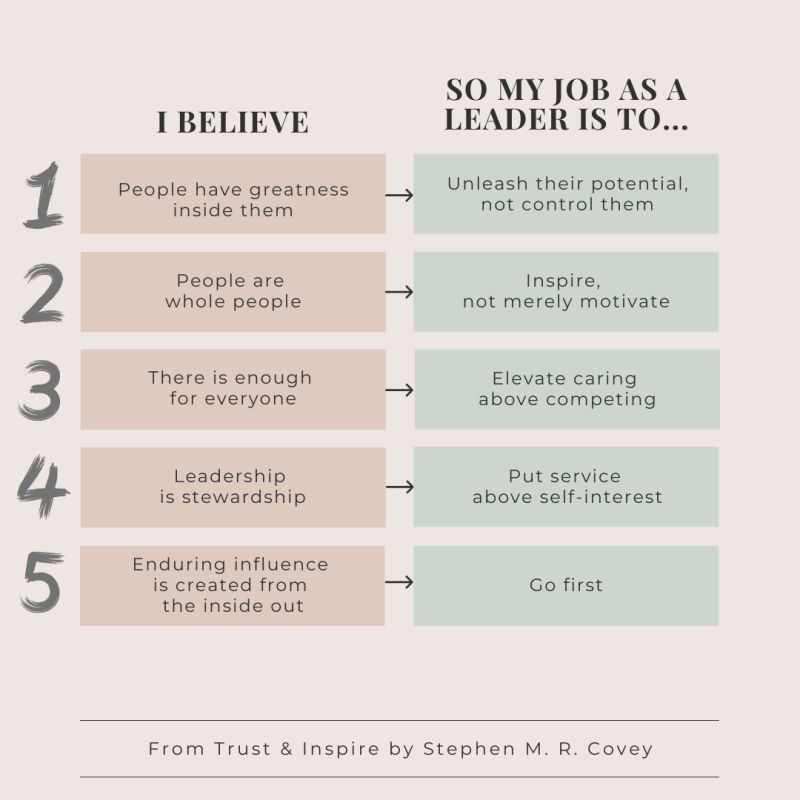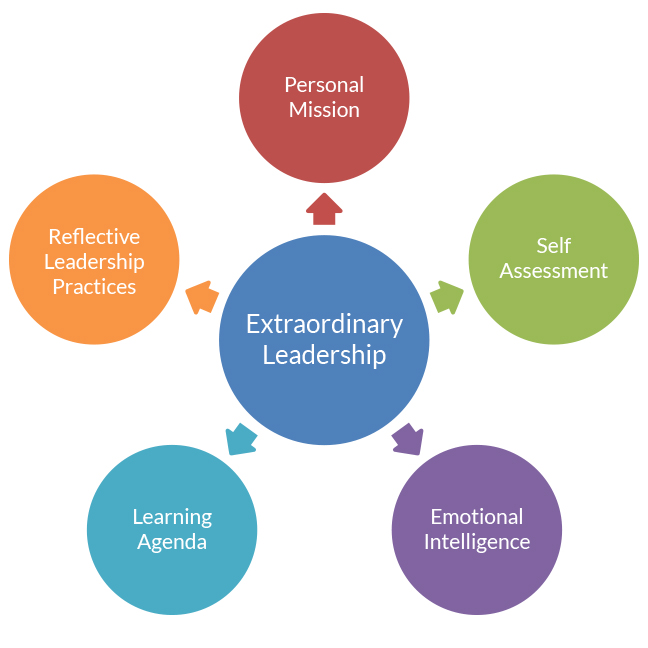What separates great leaders from good ones?
It’s not just strategy, vision, or charisma. Extraordinary leadership starts with beliefs. Every decision you make, every challenge you tackle, every team you guide comes back to the assumptions shaping your worldview. And while powerful beliefs can elevate your leadership, limiting beliefs can just as easily hold it back.
The difference between good and great leadership isn’t talent or experience. It’s the ability to uncover, challenge, and rewrite the beliefs driving your behavior.
Below are seven core beliefs that define remarkable leaders, the mindset shifts they embody, and practical steps for rewriting unhelpful beliefs that could be limiting your potential.
 Image Source: LinkedIn
Image Source: LinkedIn
1. “I can choose how I respond.”
Great leaders operate with emotional intelligence. They understand that while they can’t control every situation, they can control how they respond to it. Whether navigating a high-stakes negotiation or addressing team challenges, effective leaders don’t react impulsively but respond with intention and clarity.
How to Rewrite Limiting Beliefs:
If you often feel triggered or powerless in tough situations, try adopting this belief instead:
“I have influence over my reactions, even when I can’t control the circumstances.”
Practical Tip: Practice pausing. When you feel overwhelmed, take a breath and count to ten. This gives you time to shift from a heightened state to a thoughtful and intentional response.
2. “Growth is possible—especially in discomfort.”
Exceptional leaders know that growth rarely happens in the comfort zone. They reframe challenges as opportunities for learning and progress, inspiring their teams to do the same. Whether it’s tackling a setback or confronting personal blind spots, discomfort becomes a doorway to evolution.
How to Rewrite Limiting Beliefs:
If you avoid challenges or fear failure, replace that belief with:
“Every obstacle is a chance to build capability.”
Practical Tip: Reflect on a past challenge that improved your skills or mindset. Acknowledge the growth it brought. This will help you reframe future discomfort as an investment in your development.
3. “Asking for help is a strength, not a weakness.”
The myth of the self-reliant leader is outdated. The most successful leaders know they don’t have all the answers. By asking for help, they foster connection, collaboration, and innovation within their teams. Vulnerability builds trust, and trust powers great teams.
How to Rewrite Limiting Beliefs:
If you hesitate to delegate or seek support, internalize this instead:
“Connection and interdependence drive success.”
Practical Tip: Start small. Next time you’re stuck, ask a team member for their input or ideas. You’ll be surprised at how collaboration spurs creativity and problem-solving.
4. “My worth isn’t tied to performance.”
Many leaders fall into the trap of equating their value with outcomes. But if your identity is tethered to results, it can lead to burnout and insecurity when things don’t go as planned. Extraordinary leaders separate their self-worth from their achievements and lead from a place of confidence and self-awareness.
How to Rewrite Limiting Beliefs:
If perfectionism or overwork dominates your life, try this:
“I lead from who I am, not just what I achieve.”
Practical Tip: At the end of each day, consciously acknowledge something you’re proud of beyond results. It might be how you handled a situation or the integrity you brought to a task.

5. “I am responsible for my impact, even when it’s unintentional.”
Leadership is about outcomes, not just intentions. The best leaders actively seek feedback, own their missteps, and take responsibility for the impact of their words and actions. This belief fosters accountability, improves trust, and strengthens relationships.
How to Rewrite Limiting Beliefs:
If you struggle with defensiveness or feel misunderstood, adopt this mindset:
“My impact matters more than my intent.”
Practical Tip: Develop the habit of asking for feedback regularly. Start with simple questions like, “Was there anything I could have done differently in that situation?”
6. “It’s safe to be seen.”
Authenticity fuels influence. Leaders who hide, shrink, or mask their true selves out of fear for judgment or failure diminish their impact. Exceptional leaders recognize that their imperfections make them relatable and their authenticity makes them impactful.
How to Rewrite Limiting Beliefs:
If imposter syndrome or self-doubt creeps in, repeat:
“I don’t have to be perfect to lead powerfully.”
Practical Tip: Share a personal story or lesson with your team. Authenticity fosters connection, and vulnerability inspires trust among your colleagues.
7. “Beliefs can change—and that changes everything.”
The most profound belief of all is understanding that beliefs themselves are malleable. Great leaders are willing to evolve, rewrite old narratives, and adapt to new challenges as they grow. They don’t cling to outdated ways of thinking, but instead approach every situation with curiosity and openness.
How to Rewrite Limiting Beliefs:
If you feel stuck in old patterns, shift to:
“What got me here doesn’t have to keep me here.”
Practical Tip: Take time to reflect on what beliefs once served you but no longer align with your goals. Write them down, then consciously replace them with empowering alternatives.

Strategies for Changing Core Beliefs
Sometimes deeply ingrained beliefs require more focused attention to shift. Here are three practical strategies to start rewriting yours:
- Self-Awareness through Reflection: Spend 10 minutes daily journaling your thoughts and emotions. Over time, patterns and limiting beliefs will surface.
- Leverage Affirmations: Positive affirmations aren’t just clichés. Regularly repeating empowering beliefs helps reframe your mindset and hardwire new thought patterns over time.
- Engage in Meditation: Practicing mindfulness and meditation can help you become more aware of your thought processes. This heightened awareness allows you to identify and challenge limiting beliefs as they arise.
Great Leadership Starts with Untangling Beliefs
Every decision you make as a leader stems from a belief. The good ones act as guiding principles for growth and progress, while outdated or limiting ones can hold you (and your team) back.
The path to extraordinary leadership requires confronting those beliefs, rewriting them as your needs evolve, and using them to strengthen not only your leadership but also your life.
Which belief will you rewrite today?
Join our Leadership Circle Profile Certification to transform your leadership journey and support others in theirs.






The idea that leadership is shaped by beliefs, rather than just skill sets, is something I’m passionate about. It’s easy to overlook how our assumptions about situations affect our behavior. Challenging these beliefs can truly unlock greater potential.
This blog never disappoints. Always fresh and engaging content.